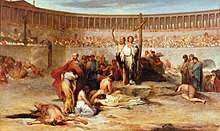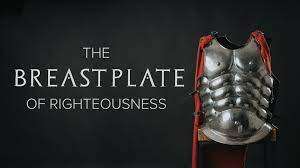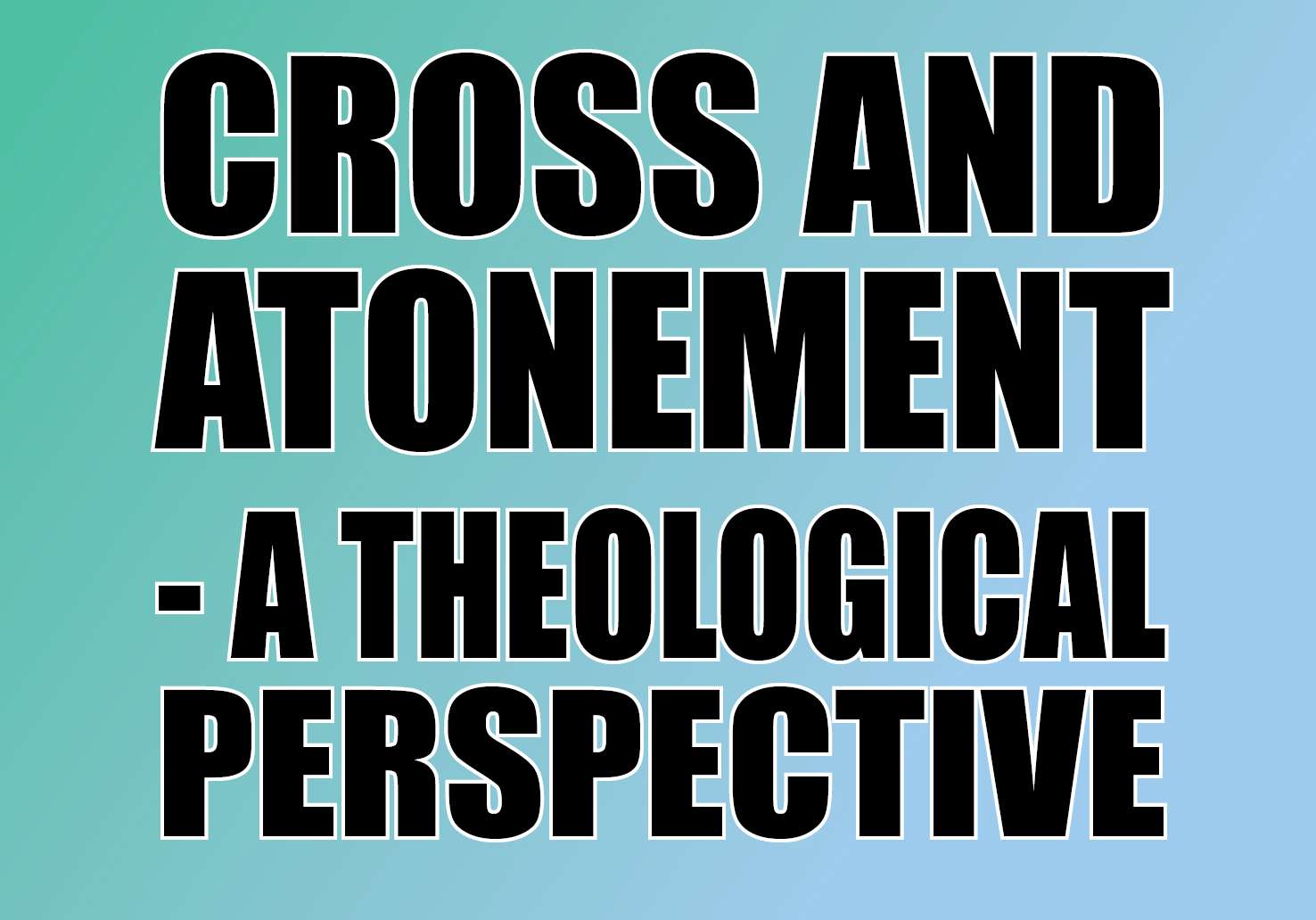

Acts 15 – Legalism in the Churches Today
Dr. Domenic Marbaniang
The Collins English Dictionary defines legalism as “strict adherence to the law, esp the stressing of the letter of the law rather than its spirit.” The distinction between the strictly literal meaning of the law (litera legis) and its general meaning, its spirit or its intention, is an important one in law and jurisprudence. Also, the fact that the presence of a criminal intent (mens rea) in an act establishes the doer’s culpability is universally accepted in all mature codifications of law.
It is in the New Testament writings of Paul that we first see the expressions “spirit” and “letter” in relation to the law of Moses (Rom.2:29; 7:6; 2Cor.3:6). Paul says that “the letter kills, but the spirit gives life.” (2Cor.3:6). In essence, a legalistic person is carnal and sinful even if he meticulously observes what the law literally prescribes. He is like the rich young man who came to Jesus and claimed that he obeyed all the commandments, but when Jesus told him to sell all his riches, give them to the poor, and follow Him, his emotions attached to his riches took over him (Mark 10:17-22). His acts conformed to the letter of the law, but his heart was where his worldly treasure was. The same was so with Cain who killed his righteous brother Abel—his intentions were questionable, carnal and wicked (Gen.4:6; 1John3:12) though he seemed to be “rightly” bringing the offering (Gen.4:7, Septuagint).
While the Apostolic church was still predominantly Jewish, the problem of legalism did not arise. It was only when Gentiles started coming in, beginning with Acts 10, that the issue began to surface. The issue was so intense that even Peter, through whom the door of the church opened to the Gentiles, at a point could not resist the temptation of it. This happened when Peter visited Antioch, where Paul and Barnabas ministered, and where an increasing number of Greeks were being added to the church first through the ministry of Cyprian and Cyrenian believers (Acts 11:20; Gal.2:11). It is not certain whether this event happened before the Jerusalem Council in Acts 15 or after, but Paul’s rebuke of Peter that he was forcing “Gentiles to follow Jewish customs” (Gal.2:14) seems to indicate that it may have been prior to Acts 15, i.e. prior to the Apostolic decision to not force Jewish practices on Gentile believers; for, in line with this, if it was after, Paul may have reminded Peter of his own words during the Council:
“God, who knows the heart, showed that he accepted them by giving the Holy Spirit to them, just as he did to us. He made no distinction between us and them, for he purified their hearts by faith. Now then, why do you try to test God by putting on the necks of the disciples a yoke that neither we nor our fathers have been able to bear? No! We believe it is through the grace of our Lord Jesus that we are saved, just as they are.” (Acts 15:8-11)
It seems very improbable that a Peter who said these words in response to the query sent from Antioch would go back to Antioch and then violate the same principle. But, on the other hand, if one regards Galatians 2:11 as chronologically following the events of Galatians 2:1-10, then it does not seem improbable that this happened after the Jerusalem Council, shockingly. Legalism can be very subtle and compelling—Paul says that when Peter, out of fear of Jewish Christians, began to separate himself from the Gentile believers and fellowship only with Jewish Christians, other Jews, including Barnabas, followed suit.
If that had happened to Peter and Barnabas, it can happen to anyone. Both Jesus and Paul termed legalism as hypocrisy (Gal.2:13; Matt.6:2; 22:18; 23:13). It appeared to be externally clean, the “outside of the cup and dish,” but was internally rotten with lust (Matt.23:25).
While Jewish legalistic issues such as circumcision in the flesh are no longer issues in the church today, we still need to ask whether there are ways in which the carnality and hypocrisy of legalism is afflicting and spiritually destroying churches in our times.
A few of the characteristics of legalism may be scripturally traced as follows:
• Legalism involves external conformity to a form of holiness that is man-made and man-approved (Gal.1:10; John 5:44; 12:43; Luke 20:46; 2Tim.3:5). Legalism seeks the approval of men rather than the approval of God. It desires to look holy rather than be holy. While legalists may deeply desire true holiness, their fear of human rejection and desire for human admiration prevents them from serving God in truth and spirit and their ministry is carnal thoroughly. In fact, if they think people appreciate those who confess their sins and talk of their weaknesses, they may exactly do that, not to please God but to be admired by men. But God does not look at one’s appearance; He looks at the heart (1Sam.16:7). The question to ask oneself is: “What is the spirit or intent of this action? Does it truly conform to the love of Christ? Is it something that Christ approves of?”
• Legalism involves carnal separatism, i.e. a separatism that relates to flesh (Gal.2:12; Jude 19; Luke 5:30; 1Cor.3:3; Luke 18:9-14). Love heals but the law only condemns. Therefore, legalism goes hand in hand with division and separatism. Separatism here means that which looks down on others and regards oneself or one’s group as better and holier. It is loaded with spiritual pride about self and contempt for others and so leads to spiritual blindness and self-destruction (Psa.36:2; Prov.16:18). Imagine what would have happened if Paul had not rebuked Peter and allowed him to be influenced by the Jewish Christians to separate from fellowshipping with Gentile believers. Imagine what would have happened if he had not rebuked the Corinthians for becoming divided over preachers. The law of Moses prescribed divisions for social management; but what the Lord really seeks is the unity of the Spirit in the bond of peace (Eph.4:1-3). That was what Jesus prayed for (John 17:21). Any form of fleshly-based separatism of church fellowship (be it gender, race, language, or culture) is misguided and derailed from the track of God’s purpose for the church. Jesus was not ashamed or afraid of talking to the Samaritan woman because He knew who He was (John 4:27). Separatism restricts the work of the Spirit. Just imagine, if Jesus had avoided the talk with the Samaritan woman, would the Samaritans have been able to meet Jesus? The question to ask oneself is: “Do I look at other Christians or churches as inferior or superior for reasons that are purely external and carnal?” “Do I have cultural pride and regard people of other cultures as inferior?” “Does social status mean much to me?” “Do I cherish a group-identity?” “Do I restrict the work of the Spirit by entertaining some group-centered attitude?”
• Legalism undermines the work of Christ and perverts the Gospel of salvation by grace alone (Gal.1:6-10; 1Cor.4:7; Gal.2:21). Legalism essentially teaches salvation by observation of rules and regulations. The grace of God is not lawless and workless. Grace teaches us that “denying ungodliness and worldly lusts, we should live soberly, righteously, and godly, in this present world; looking for that blessed hope, and the glorious appearing of the great God and our Saviour Jesus Christ” (Tit.2:12-13). God saves us by grace so that we will be rich in good works (Eph.2:10; 1Tim.6:18). The works of grace exalt God and lift Him up. The works of law, on the other hand, attempt to exalt the self. The question to ask oneself is: “Am I proud of my talent and achievement or am I daily humbled by and grateful for the fact that everything that I have is given by God, something not to boast about?” “Do I become excited when I sense that I am more preferred to others, or have a fan following?” (1Cor.4:7) “Do I judge and condemn people without considering that I myself am the greatest of sinners and have been saved by grace?” (1Cor.4:4).
• Legalism emphasizes on minor things—related to particular rules about tithing, clothing, fasting—and ignores the weightier matters like justice, mercy and faithfulness—the ultimate spiritual values that are the basis of the particular rules, i.e., the spirit of the law (Matt.23:23; 12:7). For the Greek philosopher Plato, an understanding of the difference between ultimate values and particular applications in any political system determines the health of the governed city or polis. God has not called us to a blind observation of shadowy, particularistic rules but to true spiritual wisdom in matters of justice, righteousness, and mercy. By His death, Christ freed us from this world of shadows, of basic principles that merely concern perishable things, and lifted us up to sit with Him in heavenly places, to know Him and to be like Him (Col.3:1-4). As Paul said, “Do not let anyone judge you by what you eat or drink, or with regard to a religious festival, a New Moon celebration or a Sabbath day. These are a shadow of the things that were to come; the reality, however, is found in Christ…. Since you died with Christ to the basic principles of this world, why, as though you still belonged to it, do you submit to its rules: Do not handle! Do not taste! Do not touch!? These are all destined to perish with use, because they are based on human commands and teachings. Such regulations indeed have an appearance of wisdom, with their self-imposed worship, their false humility and their harsh treatment of the body, but they lack any value in restraining sensual indulgence” (Col.2:16-23). Let us ask ourselves: “Am I more worried about rituals and customs, or do I seek to know why these rituals and customs actually exist?” “Do I seek to fulfill man-made rituals and customs or do I seek to be clothed with compassion, kindness, humility, gentleness, patience, forgiveness and love?” (Col.3:12-14).
• Legalism locates the moral problem (and temptation) without rather than within and teaches that morality or immorality depends on how external situations are handled (Job 1:11; 2:4; Gen.3:12-13; Mark 7:21-23; 2Pet.2:7; James 1:13-16). In the early period of Christian history, there were some believers who left their towns and cities and went to the desert in search for holiness and purity. They became known as the desert fathers. They lived a life of isolation, meditation, and prayer disconnected from all the worries of city and town life. They thought that away from such world of temptations, they can grow closer to God and be purer. However, very soon they discovered that their battle with sin did not end by shifting to a society-free environment. The first of these monks, Antony, who became known as the father of monasticism said, “Who sits in solitude and is quiet hath escaped from three wars: hearing, speaking, seeing: yet against one thing shall he continually battle: that is, his own heart” (The Sayings of the Fathers, Book II). Paul confessed in Romans 7 that the law was only able to reveal to him how sinful he was rather than helping him become internally righteous. He would not have known that to covet was wrong if the spiritual law had not told it to him (Rom.7:7). Paul realized that the problem was within: “For I know that in me (that is, in my flesh) nothing good dwells; for to will is present with me, but how to perform what is good I do not find” (Rom.7:18). Recently, the Taliban government in Afghanistan is reported to have made a new vice and virtue law that bans women from raising their voice in public in addition to the earlier mandate to wear a full burqa in public and going out only when accompanied by a male. The underlying belief behind this law is that women are the cause of temptation for men and lack of control over their appearance can cause social disorder. But Jesus taught that, it is not the woman but the man who looks at her with an intention to lust who is the one to blame: “Whoever looks at a woman [with the intention] to lust for her has already committed adultery with her in his heart” (Matt.5:28). Legalism attempts to handle a problem by dealing with it externally. I have come across some churches where the leader prohibited all prophesying in the church when he discovered that some, especially the youth, were prophesying from their own mind. Instead, he should have tried to guide them. But by stifling them and imposing a self-made unscriptural rule or law to solve a problem, he discouraged the gift of prophecy from operating in his assembly. The children of the flesh persecute the children of the Spirit (Gal.4:29). The questions to ask oneself is: “What do I value in people, their external compliance to rules or their personal growth in Christ?” “Do I attempt to understand my child’s feelings and struggles, or do I only focus on whether he or she is obeying the rules I set?” “Do I think that changing a city or even a church can get me closer to God or do I understand that I am God’s temple, and Christ loves to dwell in me and have communion with me?”


























